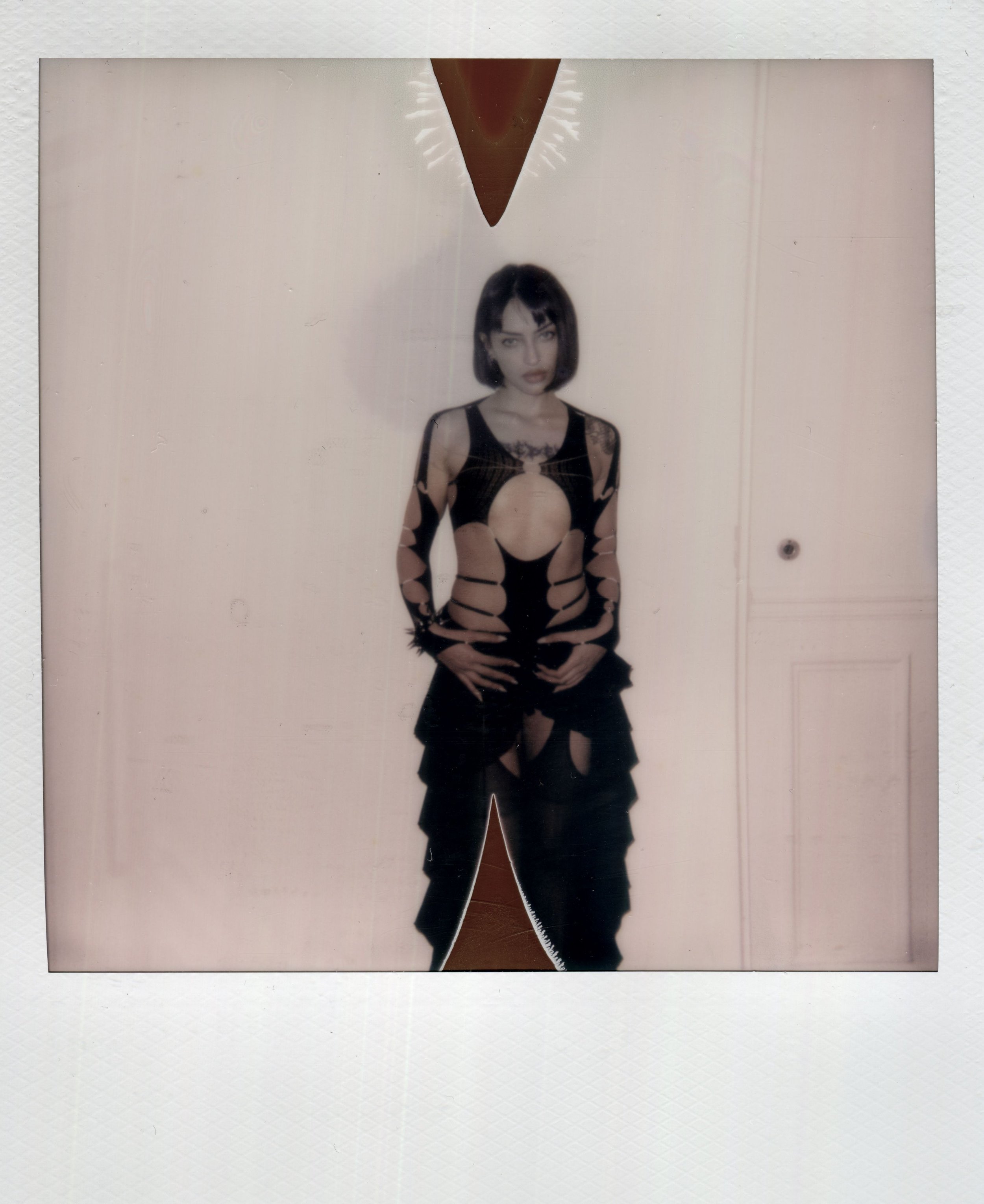Kiss Facility
top FANCI CLUB necklace STYLIST’S OWN
Celebrating the release of her EP “Esoteric”, the following editorial and interview invite you to discover Kiss Facility and her seek for freedom.
top & sleeves RUI skirt & belt FANCI CLUB tights & bracelets STYLIST’S OWN shoes IFEOMA
Hello Kiss Facility and thank you for sharing some insights on your work with our community! Your new EP, titled “Esoteric, " deals with strict cultural environments and their often strict and abusive dynamics. Can you tell us more?
I cannot stress enough how there still are some Arab women, and women in general, who were controlled, brainwashed and never even realized half of the underlying mental health issues that came with it until very late (the same goes for every gender) that it’s not spoken about enough because we show the world how strong we are and continue with life like nothing happened as it’s also part of survival mechanism. I’m not against it but one must be aware of their subconscious mind and mental health to secure a healing journey.
: top & sleeves RUI skirt & belt FANCI CLUB tights & bracelets STYLIST’S OWN
Did you have the title in mind from the beginning or did it change through your creative journey?
I’ve always known what the first EP will be about. It’s very important to show people the purpose of Kiss Facility. And as much as I am dedicating this EP to my inner child, I also dedicate it to everyone else who suffered in silence. You’re anything but alone.
dress ILONA
What is the relationship between your music and your personal identity? How has the first shaped the latter? It probably goes both ways, but which one do you believe to be more true: your music being a reflection of your identity or your identity being a product of your creativity?
I’d say that music constitutes a vital part of my identity. Singing to me is very therapeutic; growing up I would always sing with my mom, to my friends and to my online community.
Also, the first thing that attracts my attention in music is melodies and to me being able to create beautiful melodies is a very important part of making music. Being Arab shaped my musical identity a lot as my ears got used to listening to different sounds.
One of the EP’s songs is titled “Prayer at the Dinner Table” and a prayer is a sort of interrupted dialogue, a conversation that exists only as long as it awaits: what kind of dialogue is the one outside of religious constraints?
It’s a spiritual dialogue. I’ve always believed in the power of cosmic energies and our sacred bond with them. Growing up I’ve always believed that one day I’ll gain my freedom and live the life I’ve always wanted. I’m thankful for living this very moment today.
top FANCI CLUB underwear & necklace STYLIST’S OWN
This is a difference-making release containing stories of survival that are not limited by their biographical references but can also act as a container for new narratives: what kind of relationship do you hope the audience will establish with your art?
I would always choose for Kiss Facility to be a source of love and hope. Everything I’ve learned and gained, and will learn, will pass it on to you. It’s a safe community translated into hopeful sounds.
Talent: KISS FACILITY
Photographer: JASON RENAUD
Stylist: REGINA NTAHOMPAGAZE
Fashion Director: DAVIDE ANDREATTA
Photo Assistant: LUNE JUSSEAU
interview DAVIDE ANDREATTA
What to read next



















